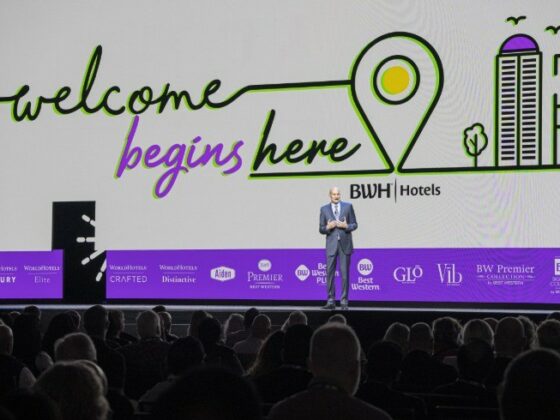
The hospitality industry thrives on exceptional guest experiences. In today’s digital world, where a single negative online review can ripple through a hotel’s reputation and impact bookings, delivering personalized and efficient service is paramount. Hotels and restaurants are increasingly turning to artificial intelligence (AI) to elevate customer service and streamline operations, but a worrying trend has emerged: the AI maturity crisis.
While many organizations have embraced AI tools like chatbots, a significant portion are merely scratching the surface of what this technology can truly achieve. A recent study paints a stark picture: 60% of AI deployments in the contact center are classified as “low maturity,” focused primarily on basic automation and cost reduction rather than enhancing the customer experience and driving business growth. This finding should serve as a wake-up call for the hospitality industry, where personalized service and guest satisfaction reign supreme.
The Impact on Guest Satisfaction
Low-maturity AI, often characterized by simple rule-based chatbots and limited functionality, struggles to meet the complex needs of today’s travelers. These basic bots often fail to understand nuanced requests, personalize interactions, and provide seamless support across various communication channels.
Imagine a frustrated guest trying to modify their reservation through a chatbot that can only handle simple FAQs, or a traveler seeking assistance with a lost item encountering a virtual assistant unable to escalate the issue to a human agent. These scenarios, all too common in the industry, highlight the need for a more sophisticated approach to AI.
The consequences of failing to embrace high-maturity AI in hospitality can be significant. Research found that only 10% of contact centers have high-maturity AI programs in place. As a result, many are grappling with challenges that directly impact guest satisfaction, including high agent turnover (affecting 42% of contact centers), employee burnout (39%), fragmented tools and data (31%), and long customer wait times (20%).
Think about the impact of high agent turnover on a hotel’s ability to provide consistent and personalized service. New agents require extensive training, and the constant churn can lead to knowledge gaps and inconsistent service delivery. Similarly, employee burnout, often caused by repetitive tasks and stressful interactions, can negatively impact guest interactions and lead to further attrition.
AI’s Hidden Revenue Potential
Low-maturity AI deployments miss out on significant revenue opportunities. New research revealed that mature companies leveraging advanced AI capabilities saw substantial increases in upsell and cross-sell rates (68%), as well as improvements in customer acquisition costs (reduced by 66%) and revenue per interaction (64%). Imagine the potential revenue gains for a hotel that can effectively use AI to personalize offers and recommend ancillary services based on individual guest preferences.
While basic AI may seem like a cost-effective solution in the short term, it can lead to increased costs in the long run. Inefficient AI implementations can result in higher agent turnover, increased training costs, and a greater need for manual intervention. Not to mention the potential damage to brand reputation as negative guest experiences quickly spread through online reviews and social media–a single negative tweet or online review can reach thousands of potential guests, impacting a hotel’s reputation and bottom line.
Achieving AI Maturity: A Guest-Centered Approach
Achieving true AI maturity requires a shift in mindset and a commitment to leveraging AI’s full potential. It starts with embracing a data-driven culture, collecting and analyzing data from all guest touchpoints to gain a comprehensive understanding of their preferences and behaviors. This might include data from online booking platforms, loyalty programs, in-app interactions, social media sentiment analysis, and even on-site surveys.
Advanced AI technologies, such as natural language processing (NLP) and machine learning (ML), are crucial for delivering personalized and efficient service. NLP enables AI systems to understand and respond to natural language queries, allowing for more natural and engaging interactions with guests. ML allows AI systems to continuously learn from data and adapt to changing guest needs and preferences, ensuring that the AI solutions remain relevant and effective over time.
Integrating AI with existing systems, such as property management systems and mobile apps, is essential for creating a seamless guest experience. Imagine a mobile app that allows guests to request services, track their room charges, and receive personalized recommendations, all within a single platform. This level of integration is only possible with a mature AI strategy.
Ultimately, the focus must remain on the guest. High-maturity AI enables hotels and restaurants to personalize interactions, offer proactive support, and ensure a consistent experience across all communication channels. This might involve using AI to tailor recommendations for local attractions, proactively offering assistance to guests who have experienced travel delays, or providing personalized dining suggestions based on dietary preferences.
It’s time for the hospitality industry to move beyond basic bots and embrace the transformative power of AI to create a more personalized, efficient, and guest-centric future. By investing in high-maturity AI solutions, hotels and restaurants can unlock new levels of guest satisfaction, operational efficiency, and revenue growth, ensuring their continued success in an increasingly competitive landscape.
About the Author
As UJET’s Co-Chief Executive Officer, Vasili Triant oversees all Go to Market activities including Sales, Channel, Alliances, and Customer Success. Triant has more than 20 years of experience in the Telecoms, Unified Communications (UC), and Contact Center industries, having previously served as VP/GM of Contact Center at Cisco, where he achieved the fastest growth in over a decade through a focus on global alliances and enterprise cloud-readiness.
Triant has also held executive-level roles at companies like ShoreTel, LiveOps, and Serenova, where he served as CEO, leading the company through a significant phase of growth and recognition.








